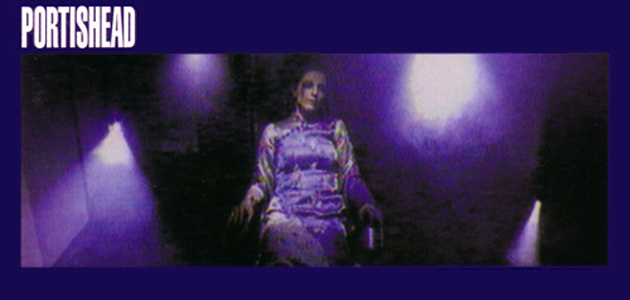 It may sound somewhat familiar, perhaps even dated now, but in 1994 there was very little frame of reference for music such as was heard on Portishead’s debut album. From the opening strains of the kick-off track, “Mysterons” with its turntable scratches, B-movie Theremin and down-tempo break beat, Dummy was unlike just about anything that had come before it.
It may sound somewhat familiar, perhaps even dated now, but in 1994 there was very little frame of reference for music such as was heard on Portishead’s debut album. From the opening strains of the kick-off track, “Mysterons” with its turntable scratches, B-movie Theremin and down-tempo break beat, Dummy was unlike just about anything that had come before it.
Portishead’s creative duo of Geoff Barrow and Adrian Utley took the underground Bristol-based down-tempo vibe known as trip-hop and crossbred it with cool jazz, film soundtracks and Berlin cabaret songs. In doing so, they created the perfect musical vehicle for the wayward siren song vocals of Beth Gibbons.
The album was a hit in the UK, sold over 150,000 copies in the States, and managed to yield two bona fide classic in the singles “Sour Times” and “Glory Box.”
With its descending bass-line, ‘60s spy movie guitar and a raspy Gibbons wailing that “Nobody loves me,” like some heartbroken chanteuse, “Sour Times” remains Dummy’s most instantly recognizable single. Like much of the album, it essentially consists of a sparse, jazzy arrangement set to electronic programming and a simple break beat. Like much of the album, it also manages to somehow sound both old and new at the same time.
While never released as a single, “Strangers” has a more contemporary Bristol trip-hop feel and is one of Dummy’s best with its spy movie guitar riff and Gibbons’ voice sounding as if it was being broadcast through a Victrola. “Wandering Star,” is another standout with its bluesy Eric Burdon & War sample, turntable scratches and Gibbons delivering yet another haunted, cabaret vocal line.
“It Could Be Sweet” and “It’s a Fire” are the album’s softer tracks. Both feature breathy, soulful vocals from Gibbons set to even sparser jazz arrangement laid over simple break-beats. “Biscuit” is a slow, sexy dirge with a down-tempo beat drenched in reverb and Gibbons at her ethereal best as she floats her vocal line between turntable scratches and samples.
“Roads” is a cool jazz number with a trip-hop drum beat and string arrangements. More layered than much of the album, it sounds somewhat closer to what Tricky and Massive Attack were doing at the time. “Pedestal” is a contemporary Bristol trip-hop soundscape with Gibbons again sounding like an old Victrola record, lots of turntable scratches and cool jazz trumpet.
Dummy also contained “Numb” which at the time of the album’s release, had previously been put out as a single. “Numb” might not have been as catchy or successful as “Sour Times,” but with its B-movie organ, turntable scratches, reverb drenched break beat and Gibbons’ voice sounding as if it were being beamed in from a 1920s Berlin cabaret, it laid the groundwork for what the Portishead musical template has basically been ever since.

Like many a great album, Dummy saves its defining moment for last. With its creeping rhythm, acid rock guitar and a sultry Gibbons cooing that she’s been a “temptress for too long” before wailing that she “just want(s) to be a woman,” like some space age version of Marlene Dietrich in The Blue Angel, “Glory Box” is a classic from start to finish. As the album’s closer track, its also an impossible act to follow as it slowly fades out on Gibbons still cooing about being a “temptress” while the whole album floats off, seemingly into deep space.
One of the first electronica albums to crossover to non-club audiences in America, Dummy still emanates the same dark but catchy pop sensibilities that enabled it to climb to no. 2 in the UK charts when it was first released. It also edged out Oasis’ Definitely Maybe that year to win the Mercury Prize for Best British Album.
Dummy helped inaugurate the UK trip-hop scene, opening doors for a whole wave of trip-hop acts including Tricky, Massive Attack, Morcheeba and the Sneaker Pimps. Even today it regularly finds its way into best albums of the ‘90s lists. Perhaps it’s in part because Dummy carries such weight that in the 17 years since its release, Gibbons, Barrow and Utley have only managed to put out two subsequent albums as Portishead.




